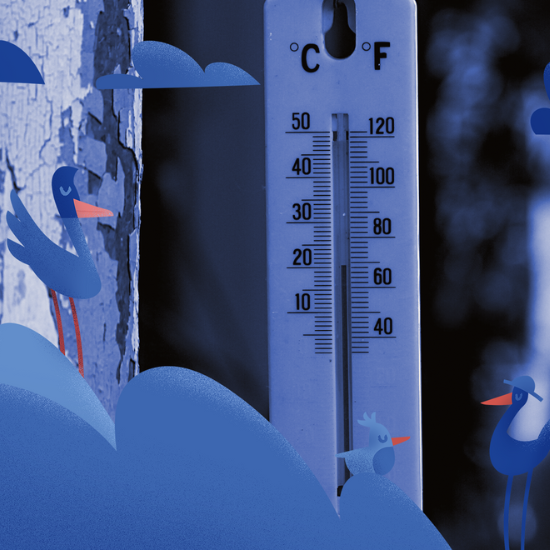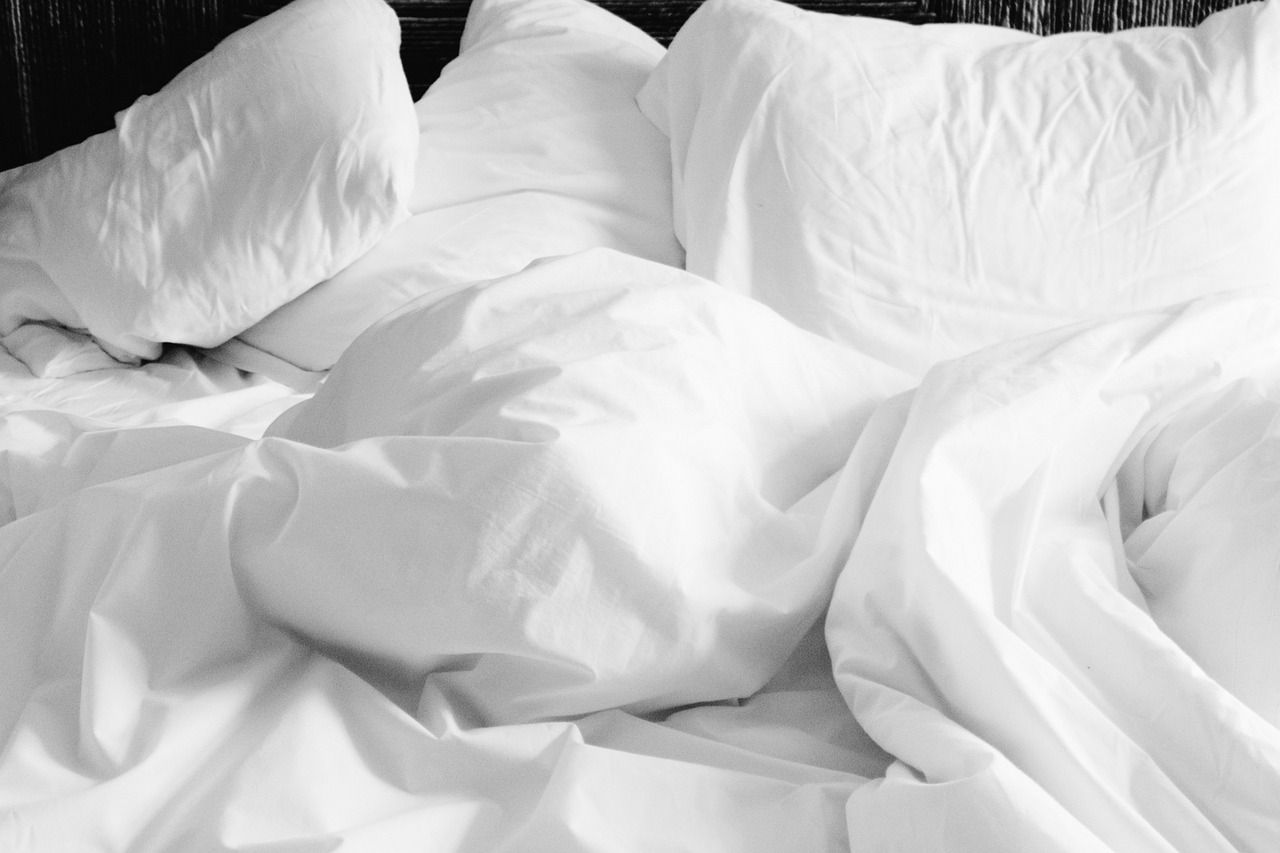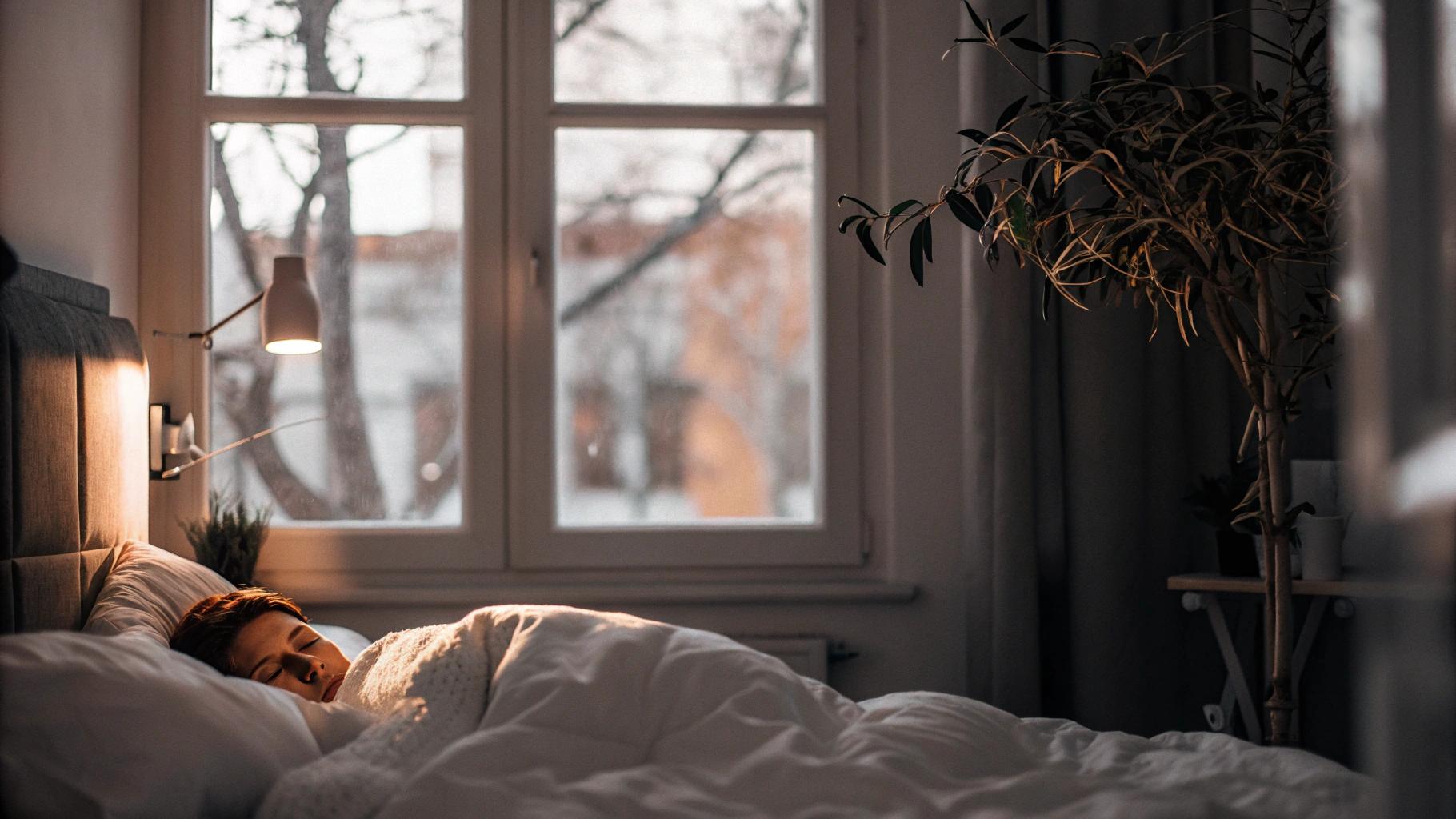
Finding the Ideal Sleep Temperature
It’s no secret that getting a good night’s sleep is essential for optimal health, but what if the temperature of your sleeping environment affects how well you rest?
There is no one-size-fits-all answer when it comes to optimal sleep temperature. Everyone has a different internal “thermostat” that regulates their body temperature. Therefore, everyone will have a different preference for how warm or cool they like in their sleeping environment.
That said, there is a general range of temperatures that are considered to be optimal for sleep. According to the National Sleep Foundation (NSF), the best sleep temperature for most people is between 60 and 67 degrees Fahrenheit.
So how do you find your optimal sleeping temperature and create an environment to help you get the most out of your slumber? Keep reading to find out.
What is the Ideal Sleep Temperature for Humans
The best sleep temperature range for humans is between 60 and 67 degrees Fahrenheit. While this may vary slightly from person to person, the main factor is that the temperature should be cool enough to promote restful sleep. When the body temperature drops at night, it signals to the brain that it is time to sleep.
If the room is too warm, the body will not reach this temperature drop, leading to restless sleep. In addition, a cool room can help to reduce morning stiffness and fatigue. To find the ideal temperature for your bedroom, start by setting the thermostat to 67 degrees and then adjust as needed.
You may also consider using a fan or air conditioner to help keep the room cool. You can enjoy all the benefits of quality sleep by creating a space conducive to restful sleep.
How Do You Find Your Ideal Sleeping Temperature
Most people know that it is important to get a restful night's sleep, but few realize that the temperature of your sleeping environment can greatly impact your sleep quality and sleep cycle.
Just like in Goldilocks, you need to find the temperature that is just right for you to get the best possible sleep. But how do you find your best temperature for sleep? There are a few different factors to consider when trying to find the perfect temperature for sleeping:
- First, think about what time of year it is. If it is summer and hot outside, you may want to keep your bedroom cooler to stay comfortable at night. Alternatively, you may want to keep your bedroom warmer to stay cozy under the covers if winter and cold outside.
- Second, consider what type of bedding you are using. If you are using heavy blankets or a comforter, you may want to keep the room cooler so that you don't get too hot at night.
- Third, think about your personal preferences. Some people prefer to sleep in a cool room, while others prefer a warm room. Experiment with different temperatures until you find the one that is most comfortable for you.
How to Create the Ideal Sleeping Environment
In addition to finding the best sleeping temperature, you can do a few other things to create the perfect sleeping environment. One of the most important is to reduce noise and light exposure in the bedroom.
Use blackout curtains or an eye mask to block any unwanted light. And if noise is an issue, try using a white noise machine or earplugs to help you drift off to sleep. Creating a dark and quiet environment can help promote deeper and longer sleep.
Another way to create the ideal sleeping environment is to ensure your bed is comfortable. This means having a supportive mattress and pillows that offer the right amount of firmness.
Everyone is different, so it may take some trial and error to find the right combination for you. But once you do, you’ll be sure to sleep soundly through the night.
What is the Ideal Sleep Temperature for Infants
While adults prefer a cool sleeping environment, research suggests that infants may benefit from a slightly warmer temperature. According to a study, infants fall asleep faster and for longer periods when the room temperature range is between 68 and 72 degrees Fahrenheit (20 and 22 degrees Celsius).
While this range may be comfortable for adults, it is important to remember that infants have smaller bodies and are, therefore, more sensitive to changes in temperature.
As a result, parents should aim for a bedroom temperature one or two degrees warmer than what they would find comfortable, up to 69 degrees Fahrenheit (20.5 degrees Celsius).
In addition to helping babies sleep more peacefully, a warm bedroom may also reduce the risk of sudden infant death syndrome (SIDS). SIDS is a leading cause of death in infants under one year of age, and while the exact cause is unknown, researchers believe that overheating may play a role.
To create a safe and comfortable sleeping environment for infants, experts recommend using approved sleepwear, setting the thermostat to a favorable temperature, and avoiding heavy blankets or multiple layers.
Parents can monitor their baby’s temperature during the night by touching the stomach or the back of the neck. By taking these precautions, parents can help ensure that their baby enjoys a restful night’s sleep.


Temperature Preference for Different Age Groups
Most people prefer a sleeping temperature between 60 and 67 degrees Fahrenheit. However, there can be significant variation among different age groups. For example, infants and young children tend to sleep best in a slightly warmer environment, around 65 degrees.
Older children and adults usually prefer a cooler temperature, closer to 60 degrees. And for seniors, a moderate temperature of around 63 degrees is often ideal. Of course, these are just general guidelines - ultimately, each person's ideal sleep temperature will be unique.
When setting the thermostat for their children's bedroom, parents should remember that younger children may need a slightly warmer environment for healthy sleep. With this in mind, they can experiment with different temperatures until they find the perfect setting for their child's needs.
What Temperature is Too Hot for Sleeping
The ideal temperature range for sleeping is between 60 and 67 degrees Fahrenheit. This range allows your body to maintain a comfortable core temperature throughout the night. As for what temperature is too hot for sleeping, that varies from person to person.
Some people find it difficult to sleep when the room is above 70 degrees Fahrenheit, while others can comfortably sleep in temperatures up to 80 degrees. If you’re not sure what temperature works best for you, it’s worth experimenting to find out. Just be sure not to turn the thermostat too low, or you may wake up feeling chilly in the middle of the night.
What are Some Tips for Staying Cool at Night
Being too hot at night can make it difficult to fall asleep and stay asleep, which can lead to feeling tired and cranky the next day. Fortunately, there are several things you can do to cool down and get adequate sleep. One of the most effective ways to lower your body temperature is to take a cool bath or shower before bed.
You can also try using a fan or air conditioning unit to create a comfortable environment in your bedroom. Another way to stay cool is to wear light, breathable clothing made from natural fabrics like cotton. Additionally, staying hydrated is important by drinking plenty of fluids during the day.
Finally, avoid eating spicy or fatty foods before bed, as they can cause indigestion and make you feel overheated. Following these tips, you can enjoy a restful night's sleep without tossing and turning all night long.
What are Some Tips for Staying Warm at Night
Some people find sleeping hard at night because they get cold easily. If you are one of those people, you can do a few things to stay warm and get a good night's rest.
First, ensure your bedroom is well-insulated by closing the windows and doors. One of the best ways to raise your body temperature is to take a warm bath or shower before bed. You can use a space heater or an electric blanket to create a cozy environment in your bedroom. You can also put an extra blanket on your bed or wear warmer clothing to bed.
Additionally, staying hydrated is important by drinking plenty of fluids during the day. Drink a hot beverage before bed and place a hot water bottle in your bed to keep yourself warm during the night.
Finally, try not to drink alcohol before bed, as it can cause you to wake up feeling chilly. These tips should help you stay warm and get adequate sleep.
Can Sleeping in a Cooler or Warmer Environment Improve Your Health?
Some evidence is that sleeping in a cooler or warmer environment can improve your health. One study found that sleeping in a cool room (66 degrees Fahrenheit) can help people with insomnia fall asleep and stay asleep longer. Furthermore, cooler temperatures may help with REM (rapid eye movement). REM sleep is the phase of sleep during which our muscles relax and dreaming starts.
Another study found that sleeping in a warm room (75 degrees Fahrenheit) can help people with arthritis-related pain. However, more research is needed to confirm these findings.
Additionally, it's important to find a comfortable temperature, as sleeping in an environment that is too cold or too hot can be uncomfortable and disrupt your sleep.
Are there Health Risks Associated with Sleeping in an Environment not Conducive to a Good Night's Rest?
A few health risks are associated with not getting enough sleep or with sleeping in an environment that's not conducive to a good night's rest. One of the biggest risks is developing chronic sleep deprivation, which can lead to several health problems, including obesity, heart disease, and diabetes.
Additionally, sleeping in an environment that is too cold or too hot can be uncomfortable and disrupt your sleep. If you struggle to get a good night's sleep, talk to your doctor about ways to improve your sleep environment and habits.
Tips for Improving Your Bedroom Environment
Your bedroom should be a sanctuary where you can relax and rejuvenate. But if your bedroom is cluttered and chaotic, it can be difficult to get a good night's sleep. Here are a few tips for improving your bedroom environment:
Declutter Your Space
Get rid of anything that you don't absolutely need. If you have clothes that you never wear, donate them or sell them. If you have knick-knacks that you don't love, put them in storage. The less clutter in your space, the more peaceful it will feel.
Ensure Your Bed is Comfortable
Invest in comfortable bedding. You'll spend a third of your life sleeping, so it's important to have bedding that is both comfortable and inviting. High-quality sheets, blankets, and pillows can make all the difference in getting a good night's rest.
If you often wake up with a sore back or neck, consider getting a memory foam mattress or an adjustable bed.
Create a Relaxing Atmosphere
Choose soothing colors for your walls and bedding. Consider investing in an essential oil diffuser to help you relax at night. And make sure that your room is well-lit; too much light can be just as jarring as too little light.
Add Some Greenery
Plants are not only visually appealing, but they also help purify the air and improve indoor air quality. Choose low-maintenance varieties that will thrive in your specific environment.
Incorporate Relaxing Scents
Aromatherapy can be very effective in promoting relaxation. Experiment with different essential oils and diffusers until you find a scent that works for you.
Conclusion
Sleeping in a cooler or warmer environment can improve your health, depending on the conditions. However, it is important to find a comfortable temperature and avoid sleeping in an environment that is too cold or too hot. Additionally, decluttering your space and creating a relaxing atmosphere can help you get a good night's rest. Following these tips can create a bedroom environment conducive to rest and relaxation.






















